Date: Thu 19 Dec 2019
Matching Commentaries:
Commentary for Exeter Riddle 88
We have a guest translator for this riddle: the one and only
Denis Ferhatović. Denis is associate professor of English at Connecticut College and an enthusiast when it comes to poetic creativity. He has brought some of this creativity to the below translation, which I hope you enjoy reading as much as I have!
Original text:
Ic weox þær ic s[……………………
……..]ond sumor mi[…………….
……………]me wæs min ti[…..
……………………
5 …]d ic on staðol[………………..
……….]um geong, swa[……….
……………..]seþeana
oft geond [………………..]fgeaf,
ac ic uplong stod, þær ic [………]
10 ond min broþor; begen wæron hearde.
Eard wæs þy weorðra þe wit on stodan,
hyrstum þy hyrra. Ful oft unc holt wrugon,
wudubeama helm wonnum nihtum,
scildon wið scurum; unc gescop meotud.
15 Nu unc mæran twam magas uncre
sculon æfter cuman, eard oðþringan
gingran broþor. Eom ic gumcynnes
anga ofer eorþan; is min agen bæc
wonn ond wundorlic. Ic on wuda stonde
20 bordes on ende. Nis min broþor her,
ac ic sceal broþorleas bordes on ende
staþol weardian, stondan fæste;
ne wat hwær min broþor on wera æhtum
eorþan sceata eardian sceal,
25 se me ær be healfe heah eardade.
Wit wæron gesome sæcce to fremmanne;
næfre uncer awþer his ellen cyðde,
swa wit þære beadwe begen ne onþungan.
Nu mec unsceafta innan slitað,
30 wyrdaþ mec be wombe; ic gewendan ne mæg.
Æt þam spore findeð sped se þe se[…
………..] sawle rædes.
Translation:
I grew where I s[……………………
……..]and summer mi[…………….
……………]me was my ti[…..
……………………
…]d I in the position[………………..
……….]um young, so[……….
……………..] nevertheless,
often throughout [………………..]fgave,
but I stood straight where I [………]
and my brother. We were both hardened.
Our shelter was worthier, adorned more highly,
as the two of us stood on top. The forest always protected us,
on dark nights, its helm of arboreal branches made a shield
against downpours. The Almighty molded us.
Now our kinsmen, our younger brothers
must come after us, and snatch away
our shelter. I am the only human individual
left in the world. My own back is
murky and marvelous. I stand on wood,
on the border of the shield/on the edge of the table/on the margin of the page.(1)
Mi hermano no está aquí.(2)
But I have to guard the position, brotherless
on the border of the shield/on the edge of the table/on the margin of the page.(3)
I must stand unmoved.
No sé dónde mi hermano debe habitar,(4) possessed by men, their property
in what quarter of the world
he who used to shelter high by my side.
We two were one when waging war.
Yet neither could make his valor known
as we were both no good when it came to battle.
Now some degenerates slit my insides,
tear into my abdomen. I cannot escape.
Following these traces finds abundance who […
………..] advantage to the soul.
Click to show riddle solution?
Antler, Inkhorn, Horn, Body and Soul
Notes: This riddle appears on folios 129r-129v of The Exeter Book.
The above Old English text is based on this edition: Elliott van Kirk Dobbie and George Philip Krapp, eds, The Exeter Book, Anglo-Saxon Poetic Records 3 (New York: Columbia University Press, 1936), pages 239-40.
Note that this edition numbers the text Riddle 84: Craig Williamson, ed., The Old English Riddles of the Exeter Book (Chapel Hill: University of North Carolina Press, 1977), pages 116-17.
Translation Notes:
(1) and (3) Please see the commentary for more information regarding this multiple translation.
(2) and (4) Likewise, an explanation of the parts in Spanish, and my reason for their use, can be found in the commentary.
Tags:
anglo saxon
exeter book
riddles
old english
solutions
riddle 88
denis ferhatovic
Related Posts:
Exeter Riddle 60
Exeter Riddle 72
Exeter Riddle 83
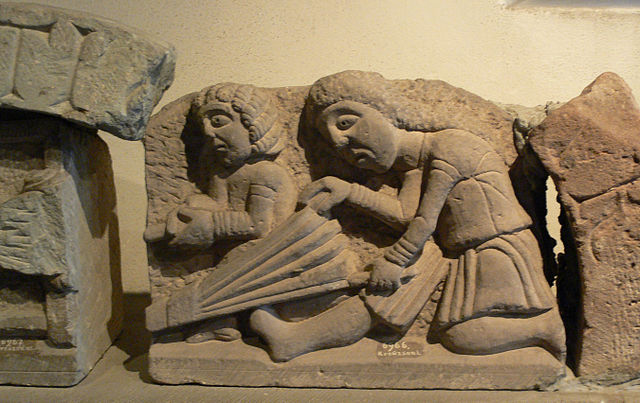
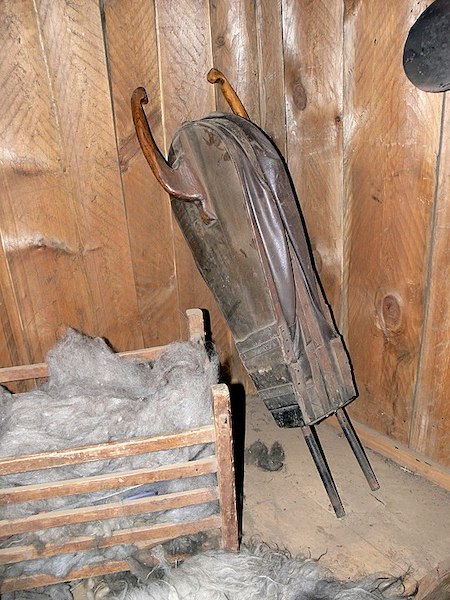
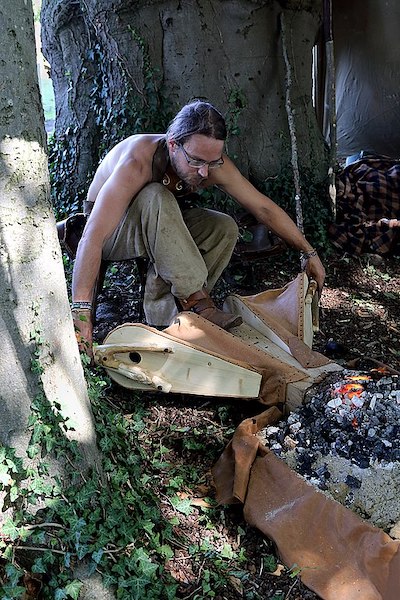


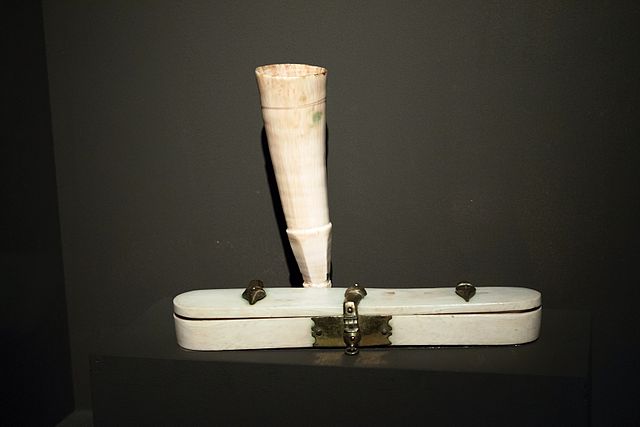
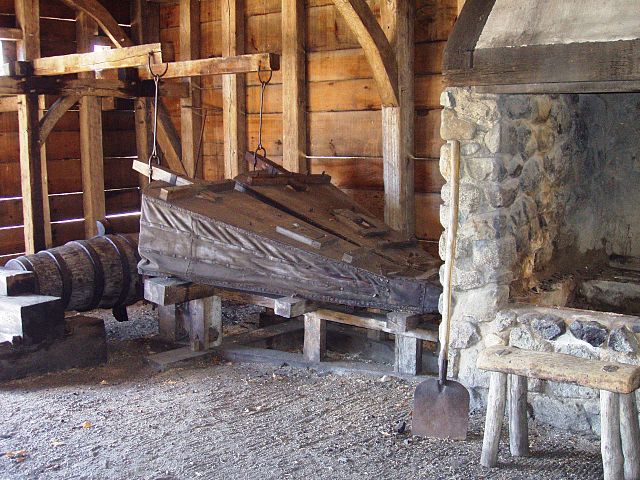
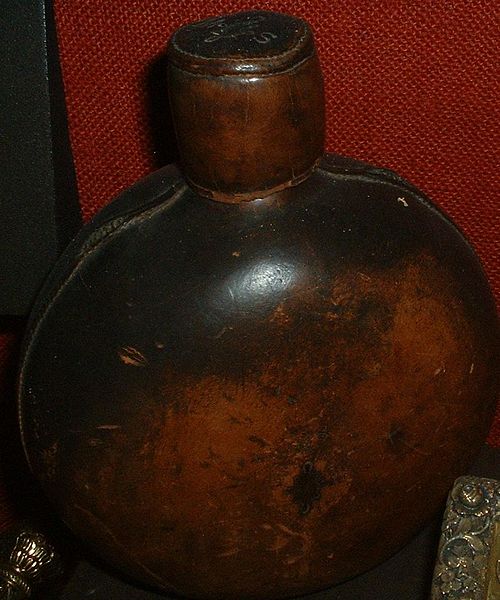
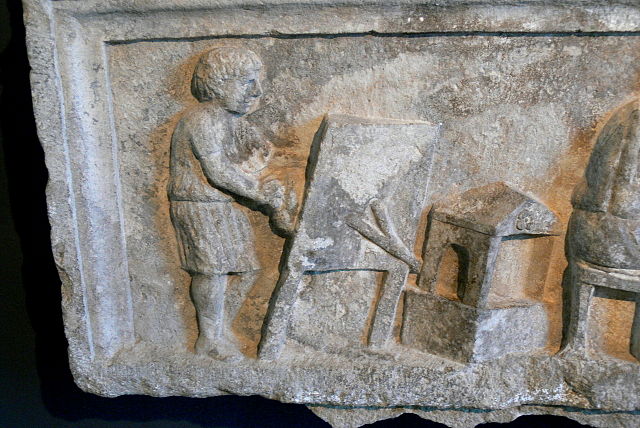
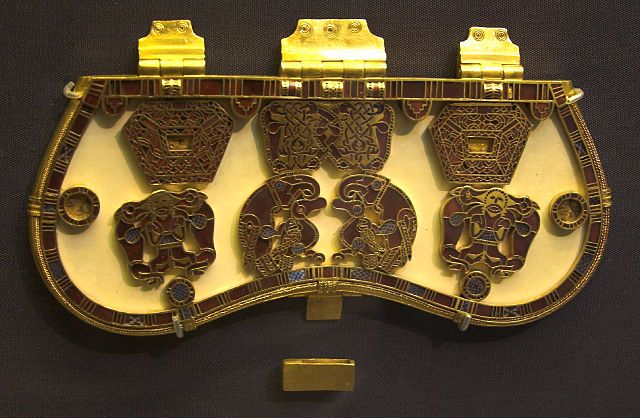
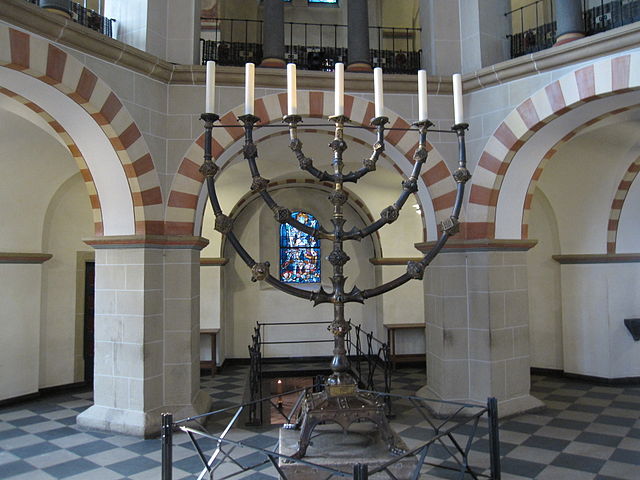
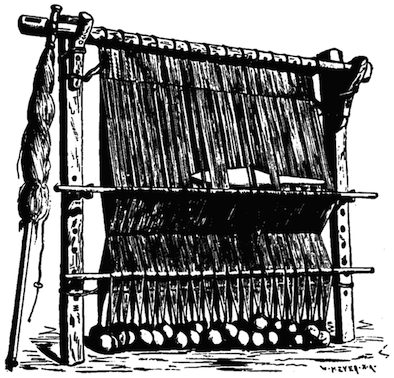
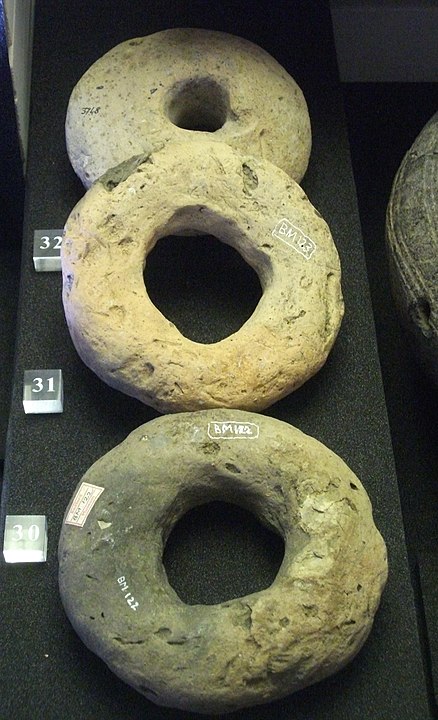
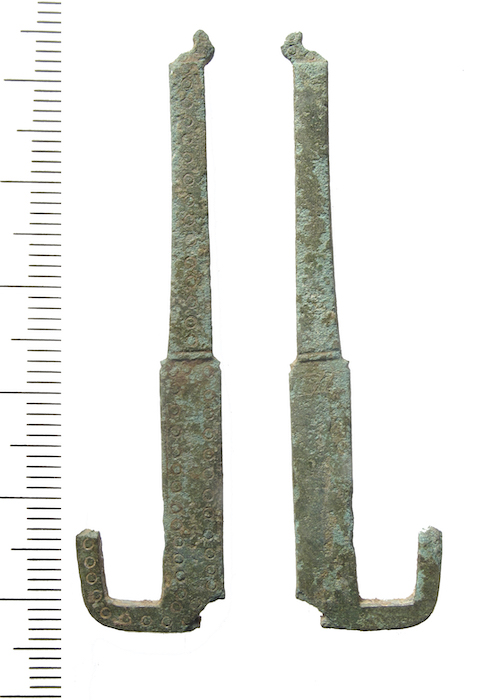




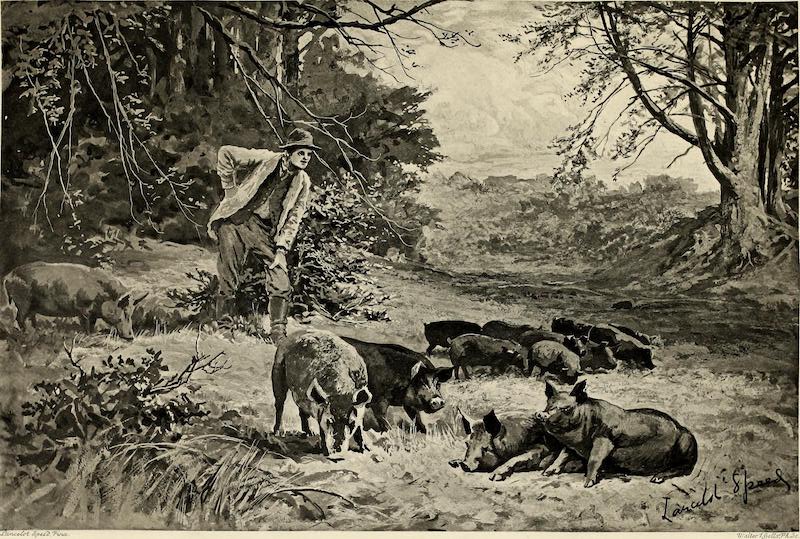

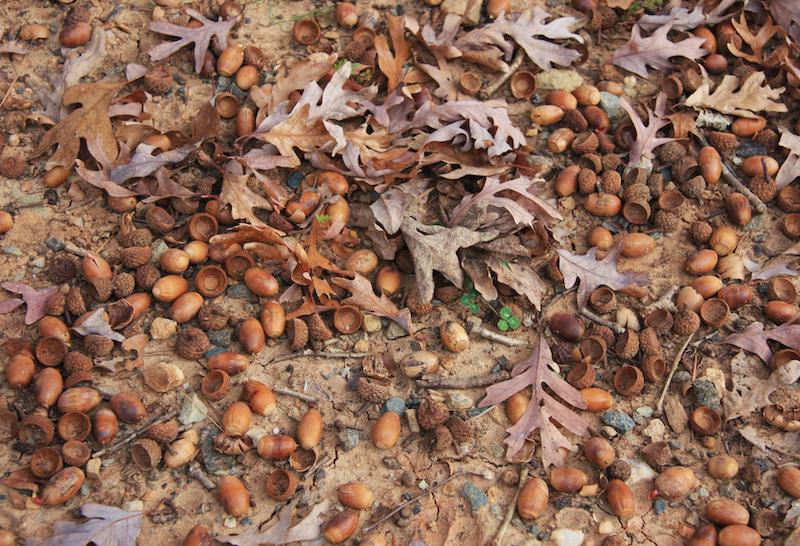
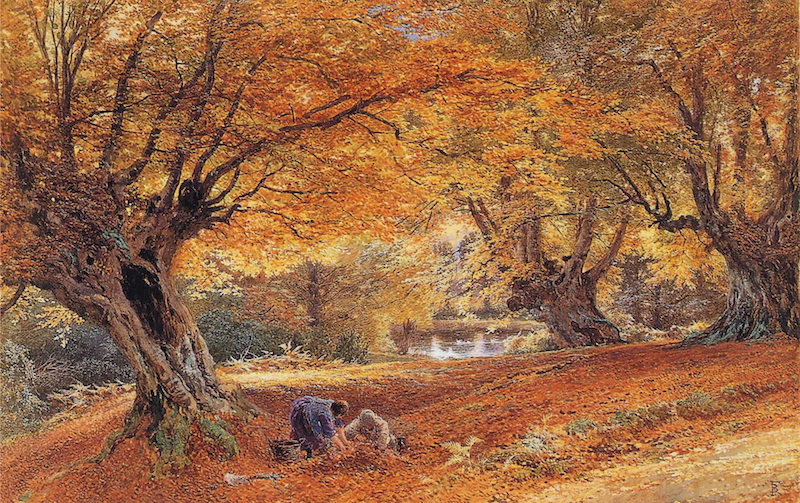




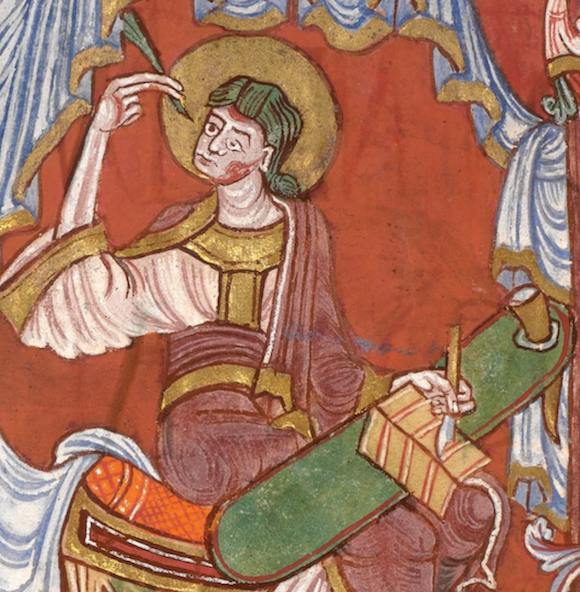


Commentary for Exeter Riddle 86
MEGANCAVELL
Date: Mon 07 Oct 2019Matching Riddle: Exeter Riddle 86
Not gonna lie: I’m having trouble getting enthused enough about garlic to write this post. I mean, I love garlic as much as the next person. But can I devote an entire blog post to this love? I guess we’re about to find out…
So, Riddle 86. This nearly impossible-to-solve riddle has in fact been solved since 1865 when F. Dietrich noted that it bears similarities to a 4th/5th-century Latin riddle by the North African poet Symphosius. Symphosius’ Enigma 94 is solved as luscus alium vendens (one-eyed seller of garlic), and it goes a little something like this:
cernere iam fas est quod vix tibi credere fas est:
unus inest oculus, capitum sed milia multa.
qui quod habet vendit, quod non habet unde parabit?
(Leary, page 51)
(Now might you see what you might scarcely believe:
he has one eye but many thousands of heads.
From where will he, who sells what he has, procure what he has not?)
(Leary, page 233)
Like Riddle 86, Symphosius’ riddles turns on the central figure’s one-eyed-ness, in relation his thousands of heads. Unlike Riddle 86, the Latin poem also tells us that this figure is selling something, and that allows us to make the leap from actual heads to heads of garlic. In Symphosius’ riddle collection, the one-eyed seller of garlic follows a riddle about a gouty soldier, so there’s a link between folks who travel – whether soldier or pedlar (Leary, page 233). This collection’s editor, T. J. Leary, also notes that the luscus, or one-eyed man, “was commonly the subject of jokes” (page 234). Leary goes on: “His ‘low-status’ disability [in contrast to soldier whose gout was result of rich living] aside, the luscus would have been looked down on too for being a hawker […]; and he would have been despised the more for hawking garlic, since this was traditionally a poor man’s food” (page 234). And so, the riddle expresses “amazement that someone who has just one eye in his own head sells all the heads of garlic he possesses and so denies himself the only hope he has, scant though it is, since heads of garlic do not possess eyes, of procuring a second from one of them” (page 234). So, there’s a lot going on here with regard to both disability and class. This Latin riddle punches down, not up.
But a lot of this context is lost in the Old English version. Robert DiNapoli notes that “barring the egregiously odd detail of the twelve hundred heads, this riddle offers no more than a wholly unremarkable description of a one-eyed man, almost prosaic in its catalogue of basic features of the human body” (page 453). This man also isn’t depicted in the act of selling. Instead, he’s seen approaching wise men in conversation. Wise men are frequently invited in the last lines of the Exeter Book riddles to show off this wisdom by solving them, so perhaps we could even view this character as approaching a group of riddlers. DiNapoli further suggests that the riddle may be taunting us with echoes of the Germanic god Odin, who is well known for both his one-eyed-ness and his tendency to travel widely and engage in contests of wisdom (page 453). But all those thousands of garlic heads would still need explaining in this context. Perhaps the joke is that we think something mysterious is happening before we realise that this is simply a travelling salesman at work.
Something that also needs explaining in this Old English riddle’s reception by academics is their tendency to throw around a lot of very loaded terms. “Grotesque” and “monstrous” come up a lot. So does “freakish.” I hope colleagues working in the field of disability studies someday take up the opportunity to unpack this sort of language in relation to Riddle 86, especially given that the central figure is in fact a disabled man with one eye. Sure, it’s the combination of this fact with the list of body-parts that crescendos in its reference to the TWELVE HUNDRED HEADS that spars on accusations of grotesquerie…but using the term “freakish” uncritically seems irresponsible to me in a world that once saw people with disabilities and developmental differences exhibited in freak shows. Check your language, academics.
A desire to over-interpret the twelve-hundred-headed character, who is otherwise simply described according to a list of body-parts, jumps off the page in Craig Williamson’s edition of the riddles: “The sight of old garlic- or onion-sellers lurching many-headed across the Anglo-Saxon marketplace may have been more common to Old English riddle-solvers than it is to us, but presumably not all of those grisly garlic-sellers were one-eyed” (pages 376-7). Nowhere in the riddle is the garlic-seller described as old. Nowhere in the riddle is the garlic-seller described as lurching. Nowhere in the riddle is the garlic-seller described as grisly. This is an over-interpretation based on a great deal of speculation. When presented with what is essentially a numerical puzzle – these body-parts don’t add up! – some folks have desperately attempted to fill in the gaps and make the poem do a lot more than it’s actually doing.
And what it is actually doing is something we still need to think about when it comes to the final line of the poem. Attention to detail is key here! As Jonathan Wilcox notes, the manuscript’s Saga hwæt ic hatte (Say what I am called) is often corrected by scholars to Saga hwæt hio hatte (Say what it is called). Given that the rest of the riddle is in the 3rd-person, the shift to 1st-person is startling: “A character came walking…what am I called?” Does this make any sense? Wilcox argues that this is actually a mock riddle and that ignoring the shift in pronouns “flattens the levels of complexity in this playful poem and misses the possibility that it parodies the very form of the riddle” (page 185). For Wilcox, the riddle’s piling on of body-parts is all a distraction. The “impossibly difficult inferences” are there “precisely because solving the central conundrum is not the point” (p. 187). In the end, the riddle doesn’t ask us to solve the numerical puzzle, but simply to identify the person who is speaking it. Is this is a clever little game on the riddler’s part or a mistake by whoever copied it into the manuscript? We may never know!
Oh the mystery.
References and Suggested Reading
Dietrich, F. “Die Räthsel des Exeterbuchs: Verfasser; weitere Lösungen.” Zeitschrift für deutsches Alterthum, vol. 12 (1865), pages 232-52.
DiNapoli, Robert. “In The Kingdom of the Blind, the One-Eyed Man is a Seller of Garlic: Depth-Perception and the Poet’s Perspective in the Exeter Book Riddles.” English Studies, vol. 81, issue 5 (2000), pages 422-55.
Leary, T. J., ed. Symphosius: The Aenigmata: An Introduction, Text and Commentary. London: Bloomsbury, 2014.
Wilcox, Jonathan. “Mock Riddles in Old English: Riddles 86 and 19.” Studies in Philology, vol. 93, issue 2 (1996), pages 180-7.
Williamson, Craig, ed. The Old English Riddles of the Exeter Book. Chapel Hill: University of North Carolina Press, 1977.
Note
The photo at the top of this post (by Luis Miguel Bugallo Sánchez (Lmbuga)) is from Wikimedia Commons (licence: CC BY-SA 3.0)
Tags: anglo saxon exeter book riddles old english solutions riddle 86 latin one-eyed seller of garlic symphosius
Related Posts:
Commentary for Exeter Riddle 35 and the Leiden Riddle
Response to Exeter Riddle 39
Commentary for Exeter Riddle 85